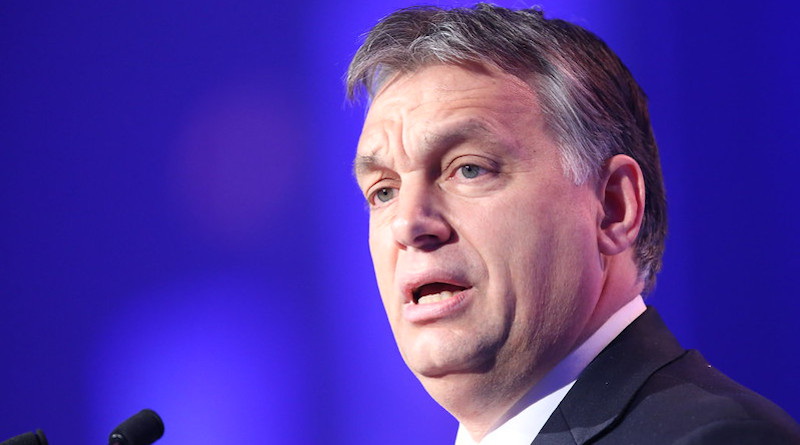Hungary’s Orban Urges Germans To Back EU Membership For Serbia
By Sasa Dragojlo
In the latest in a series of full-page paid advertisements in popular European newspapers, the Hungarian government on Tuesday published a six-point critique of the current state of the EU in big-selling German tabloid Bild – with a seventh point backing EU membership for Serbia.
“In Brussels they are building a superstate. We say no to a European empire,” says the first point in the advertisement, which is headed with the insignia of the Hungarian government and signed at the end by Prime Minister Orban.
It continues with criticims of the European Parliament, NGOs and migration policies, and declares that there is no EU without joint economic success.
The advertisement has also been published in in Spanish daily ABC, Denmark’s Jyllands-Posten, in French by Le Figaro, in Czech by newspaper Mlads fronta DNES, and in Croatian in Vecernji list, while some other media have refused to publish it.
The campaign comes as Orban endures a storm of criticism from other EU states over anti-LGBT legislation.
The advertisement’s call for Serbian EU membership did not come as much of a surprise since relations between Serbia and Hungary are better than ever, as officials from both countries are often repeat.
Critics say relations are flourishing on the basis of the shared authoritarian tendencies of Serbian President Aleksandar Vucic and Hungarian Prime Minister Orban.
Hungary’s strategic interest in Serbia relates to its big diaspora in the northern Serbian province of Vojvodina.
Parties representing the ethnic Hungarian minority in Vojvodina have been the catalyst for the improved relations between the two countries.
But behind the politics, business deals have been thriving too. A BIRN investigation revealed that a group of connected companies involving Orban’s associates and associates of Serbia’s ruling Progressive Party have come to dominate the business of Serbian street lighting.
Orban, known for his passion for football, has also recently started to invest in football in Serbia.
Serbian investigative media CINS has reported that Hungary has invested more than 70 million euros in Serbia in recent years to expand its influence.

